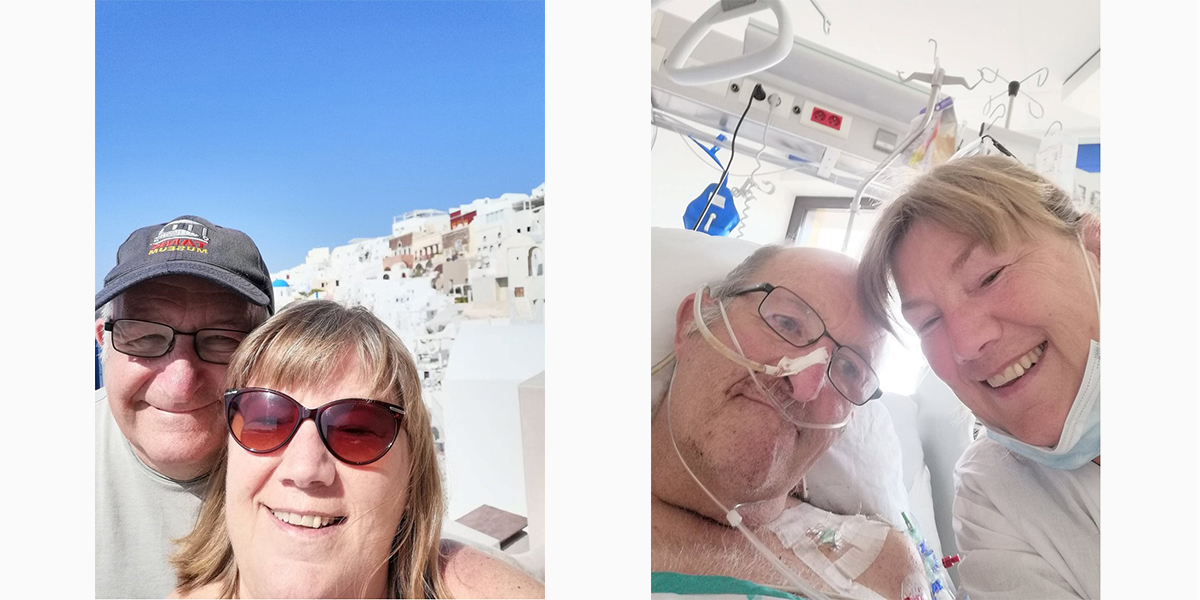In January 2020, the spread of COVID-19 began in the UK. The emotional and physical impact of the virus challenged individuals, families and communities, limiting contact with the outside world and restricted access to many resources and support.
During the pandemic, the Stroke Association carried out a ‘Stroke recoveries at risk’ report, discovering how COVID-19 had impacted and affected stroke survivors’ lives and their recoveries. The findings of the report were based on the stories and experiences of nearly 2,000 stroke survivors and their families.
Full details on the report can be found on this page.
In December 2020, the Stroke Association hosted its first virtual UK Stroke Forum (UKSF), the UK's largest multidisciplinary conference for stroke care professionals. The three-day virtual event was attended by over 1,600 delegates and covered a wide range of topics from stroke care and research.
As part of the UKSF programme and 2020’s UK Stroke Assembly webinar session, the ‘Stroke recoveries at risk report’ was shared with over 330 people who joined the live webinar. During the session, attendees heard from stroke survivor Craig Lockett about his experience being involved in the project and Policy Officer Stephanie Thomson joined the Q and A panel. Stroke Association’s Campaigns Officer Jessica Rich started the session, explaining more about the key findings from the report and recommendations in review of the report's results.
Catherine and David’s story

As part of the UK Stroke Assembly session, David, 64 from South Shields, and his wife Catherine shared their experience through the pandemic and why they supported and participated in the report.
When celebrating their ruby wedding anniversary on a dream holiday in Santorini in 2020, David developed COVID-19 symptoms. David spent two weeks in intensive care on a ventilator whilst battling a very extreme case of the virus. Whilst in recovery, David suffered a stroke leading him to spend further time in hospital.
In order to get back home for further treatment, David and Catherine experienced many difficulties and felt the impact the pandemic had on stoke care and support. Through Catherine’s determination and devotion to David, she was able to get the support of their local MP to get David repatriated back home in the UK.
Once back in the UK, David and Catherine experienced many changes within stroke care and how the pandemic had impacted resources and stroke treatment, “There were fewer stroke specialists on the ward so we don’t feel David received the level of care he should have”.
After many months in recovery, David was discharged from hospital, his stroke left him with left-sided weakness, reduced mobility, vision problems and issues with his memory, thinking and understanding. “I could do very little when I first got home, it was pretty scary. We needed an extra bannister within three days.”
David and Catherine received support from their local Community Stroke Team, who helped gather and arrange for equipment to be fitted in their home in order to support David’s ongoing recovery. “The Community Stroke Team, They were outstanding. I can’t fault them at all!”
David is still working very hard in his recovery with support of his wife and family, “Catherine is my rock, my little star. After being married for 40 years we work as a team and it’s made such a difference to me”.
Watch David and Catherine’s full interview.
(Interview starts at 13:13)
Since sharing the ‘Stroke recoveries at risk’ report, over 8,000 people across the UK have signed the Stroke Association’s Open Letter, which asks MPs to act now and support stroke survivors and their recoveries. With the future of stroke care at risk, the Stroke Association are working hard to support stroke survivors and their families during these difficult and uncertain times.
Stroke Association’s recommendations
- All UK governments must urgently progress - or commit to - national stroke initiatives, and deliver commitments made prior to the pandemic.
- All stroke rehabilitation must meet national clinical guideline levels.
- Stroke teams should follow up with all stroke survivors who had a stroke this year to review and address their rehabilitation needs.
- Health and care systems should involve stroke survivors and professionals in evaluating all changes to the stroke pathway in response to COVID-19.
- Health and care systems and local authorities should prioritise increasing the provision of, and access to, mental health services.
- Governments and local authorities must provide adequate support.
- Stroke must be prioritised when research is restarted.
- All UK governments should commit to investing in Act FAST public health messaging.
Find out more details about our recommendations.
